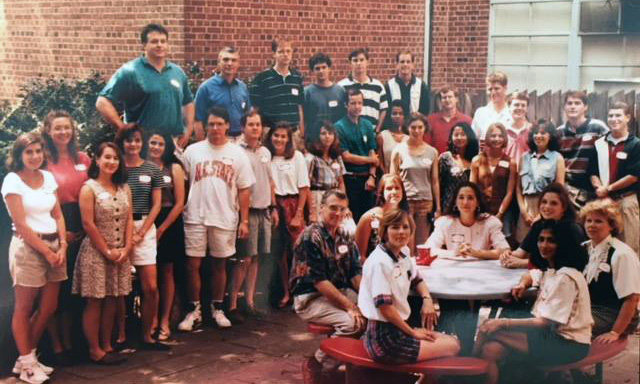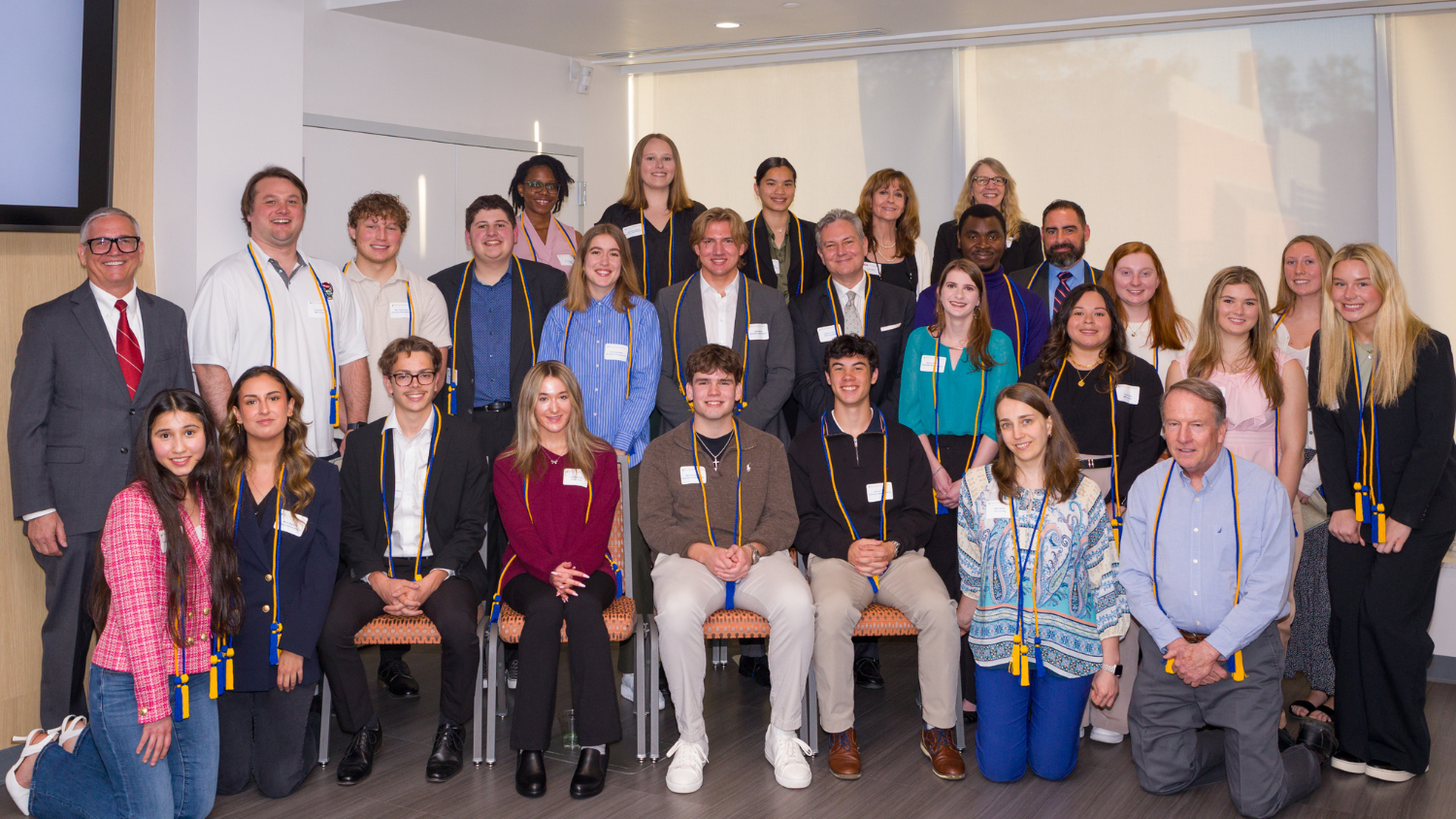NC State Jenkins MAC Alumnus Values Program’s Technical Foundation, Real World Applications

“A healthy balance of technical studies linked to real world case studies.” That is how NC State Jenkins MAC Program alumnus Craig Lupton-Smith (’95) describes the program that prepared him to launch his career.
The combination of technical and real world was “instrumental in acclimating me to the business world,” he said in an email interview with Poole College communications.
Lupton-Smith was in the first cohort of the then-unnamed College of Management’s Master of Accounting program. Now, 25 years later, both the college and its graduate programs have been named – the Poole College of Management and Jenkins Graduate School – and the focus on applied learning continues to be integrated throughout the curriculum.
Lupton-Smith has remained involved with the Jenkins MAC program, working closely with one of his former MAC professors, Mark Beasley, and the Enterprise Risk Management Initiative that Beasley established in 2005 and directs.

As North America finance leader with ADAMA, he said, “I am responsible for managing the company’s U.S. and Canada enterprise risks. The NC State ERM program was a way for our company to take a more structured approach in managing our risks, linking risks to our strategy, whilst engaging with students who often bring fresh ideas,” he said.
His current employer, Makhteshim Agan of North America, dba ADAMA, “is the North American operating company for distribution of crop protection solutions in the United States and Canada,” Lupton-Smith said. He has been with ADAMA for nearly seven years, and is responsible for financial, tax and technology matters affecting the United States and Canada crop protection operations, including production facilities, he said.
A healthy mix of technical skills and softer skills … prepared me well for working either at a firm or in industry. – Craig Lupton-Smith
Prior to joining ADAMA, Lupton-Smith was a member of EY’s Southeast Area Assurance Practice, based in Raleigh, for about 12 years. In that role, he served clients in multiple industries – including life sciences, technology, automotive, construction and mining – headquartered primarily in Research Triangle Park, Charlotte, N.C., and Charleston, S.C. “I was interested in both tax and audit, but the opportunity in audit represented itself at EY and I took advantage of it,” he said.
He also served about four years as director of finance and administration for Hatteras Networks, Inc., “a venture-backed company founded in 2000 to develop equipment to enable telecommunications carriers and service providers to deliver high bandwidth reliable business services to business locations that are not serviced by fiber,” he said. Hatteras Networks merged with Overture Networks in 2011, he added.
Lupton-Smith credits the MAC program for his ability to move between firm and industry in the course of his career.
“I think the MAC program provided a healthy mix of technical skills and softer skills – presentations, working in groups, etc. – that prepared me well for working either at a firm or in industry,” he said.
He also reflected on the evolution of the MAC program over the decades, saying: “I’ve seen a consistent strong group of professors since I started with the program, and have appreciated maintaining contact with the university.” He cited several faculty members in addition to Beasley – Frank Buckless (now interim Poole College dean and professor of accounting), Kathy Krawczyk (now Interim accounting department head and Dixon Hughes Goodman Professor of Accounting), and Bob Peace. “All were unique and effective in their own way,” he said.

“I got a lot out of the program overall, including electives in the College of Business, such as a class on entrepreneurship involving building my own business plan and competing with other students,” he said.
“I look forward to providing students with opportunities to enhance their learning experience through the ERM practicum.”
Lupton-Smith recalled a ‘beyond academics’ memory from his student days. “Several of us formed an intramural basketball team where we practiced and competed, winning our flight. It was a lot of fun,” he said.
Born and raised in South Africa – primarily in Johannesburg – Lupton-Smith began his college studies at the University of the Witwatersrand in Johannesburg, South Africa, taking courses in business and law in 1988 and 1989.
He came to U.S. in 1990 on a tennis scholarship, and played three seasons at East Tennessee State University. He took a year off to study for the CPA exam, working part time as assistant tennis coach at ETSU and then at temporary finance jobs in the Raleigh area, in cost accounting and accounts receivable. “In January 1994, I began an MBA program at East Tennessee State before transferring to NC State in the fall of 1994,” he said.
> Related story: NC State Jenkins MAC Program Celebrates 25th Anniversary
- Categories:


